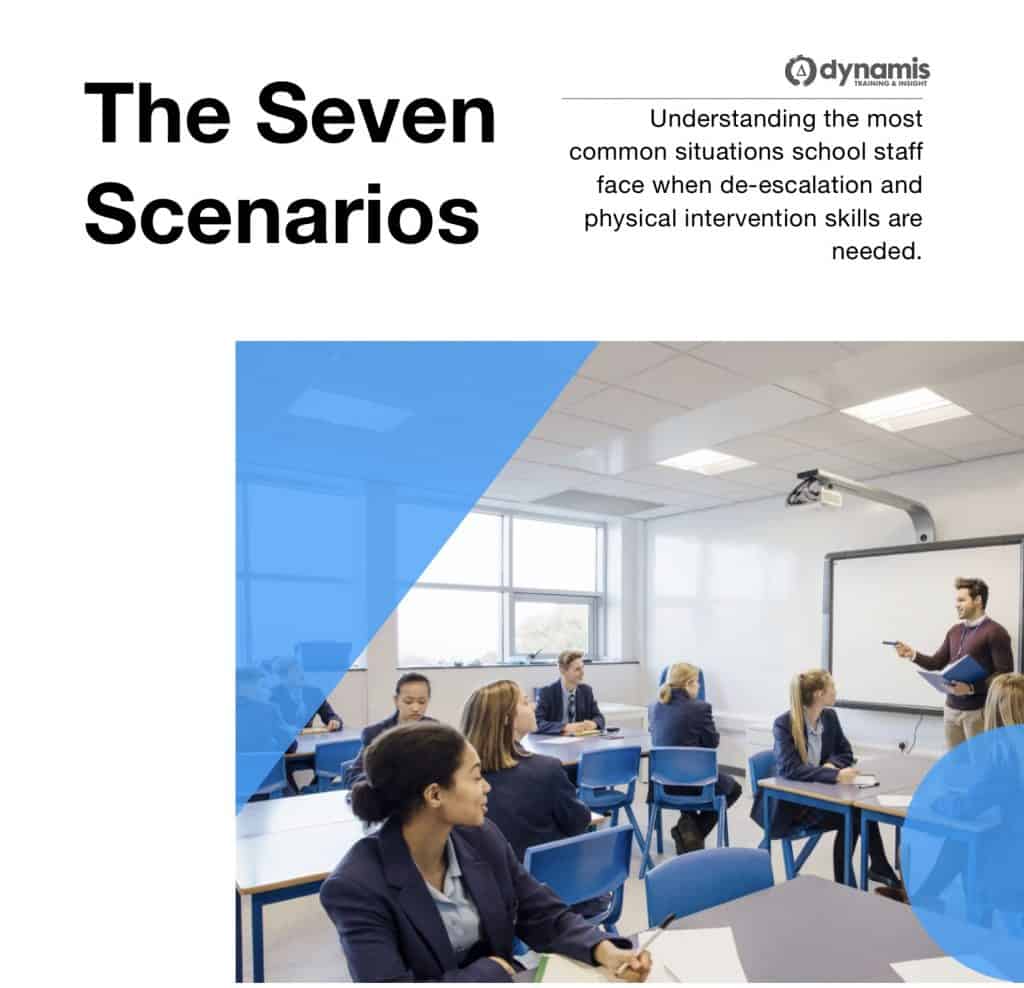Positive Handling Values Base
One of the most frequent scenarios we come across in working with teaching staff is the issue of the seriously disruptive student who refuses to follow a reasonable request.
Often this type of serious resistance to a request can escalate (in some settings more than others) into situations where physical intervention becomes necessary, despite every effort made to negotiate, persuade and otherwise talk the situation away from that kind of resulting action.
Specifically, we seem to hear that a regular issue staff have is with a child who is resisting their reasonable and carefully-made requests to leave a room or an area and responds by saying
“You cant’ make me! I know my rights! You’re not allowed to touch me!”
This kind of stand-off scenario is fraught with difficulty and stress, for all parties involved as it raises all sorts of issues about when and if it actually has become the right time and place for the child to be physically encouraged to comply with the request.
What we often advise is to put this moment in its proper context, essentially asking the all-important question: “How did we get here, and could we have gotten here better?”
And so, in order to explain the context for you, I would like to outline some of our philosophy from our programme of Verbal Defense and Influence – a system of verbalisation skills which has evolved over more than 25 years, refining itself through countless practitioner experiences for just such a situation.
Let’s start with a concept called Non-Escalation. You see, many professional trainers and speakers these days will spend a lot of time telling their clients about “de-escalation strategies”. Well, as my friend and mentor Gary Klugiewicz, a highly experienced conflict management specialist, says, “Wouldn’t it be great if we spent more time on NON-escalation, and that way we wouldn’t have to do so much DE-escalation?”
In very brief terms, we need to have values (and what UK school doesn’t have a set of values proudly on display!). Well, here is a set of values from our Verbal Defense and Influence system which are specifically formulated to influence how we interact with each others when going about daily business and trying to get things done (like learning, for example)
1: Listen to the other person, try to find their point of view
2: Ask people to do something, Don’t Tell them what to do
3: Explain Why you are asking them to do it, give them the context of the request
4: Give the person Options, don’t offer them Threats
5: Offer the person a Second Chance to work with you before you take action
Now I just want you to pause for a moment and consider this question: What would your classroom be like if every child and adult in it adhered to these values?
The brief aide-memoire version of these values looks as follows:
1: Listen
2: Ask, Don’t Tell
3: Explain Why
4: Give Options
5: Offer a 2nd Chance
…it could be potentially transformative, right? You would see teaching staff and children left and right interacting with one another in ways that would be positive and productive. They would be listening, explaining points of view, asking, working through options, reviewing their decisions before taking action.
Now, what if on top of these values, we were able to give you as a contact professional some specific tactics – turns of phrase and consistent wording – which embody these values and allow you to embed them in your interactions with your children? Now this…this is what we mean by a non-escalatory environment! An environment where everyone feels that they are treated with dignity and that they are shown respect through carefully crafted verbalisation skills.
These skills become even more important when the stakes are high and the pressure is on!
In my next look at the “Number 5” for Positive Handling I will outline our 5-step Persuasion Sequence, based on these 5 values, which is a hugely popular tactic for teams who face disruptive behaviour and serious resistance from children who refuse to comply with their requests for safety or good order in the classroom.
In the meantime as you go about your work and home life, try listening for situations where there is: an Ask instead of a Tell, or an Option instead of a Threat, a Second Chance instead of an end-point….and celebrate them!
———————————————-
Gerard O’Dea is a conflict management, personal safety and physical interventions training consultant. He is the training director for Dynamis, a specialist in personal safety and violence reduction initiatives and the European Adviser for ‘Verbal Defense and Influence’, a global programme which addresses the spectrum of human conflict. www.dynamis.training




